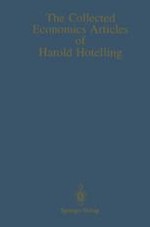1990 | OriginalPaper | Chapter
The Economics of Exhaustible Resources
Author : Harold Hotelling
Published in: The Collected Economics Articles of Harold Hotelling
Publisher: Springer New York
Included in: Professional Book Archive
Activate our intelligent search to find suitable subject content or patents.
Select sections of text to find matching patents with Artificial Intelligence. powered by
Select sections of text to find additional relevant content using AI-assisted search. powered by
Contemplation of the world’s disappearing supplies of minerals, forests, and other exhaustible assets has led to demands for regulation of their exploitation. The feeling that these products are now too cheap for the good of future generations, that they are being selfishly exploited at too rapid a rate, and that in consequence of their excessive cheapness they are being produced and consumed wastefully has given rise to the conservation movement. The method ordinarily proposed to stop the wholesale devastation of irreplaceable natural resources, or of natural resources replaceable only with difficulty and long delay, is to forbid production at certain times and in certain regions or to hamper production by insisting that obsolete and inefficient methods be continued. The prohibitions against oil and mineral development and cutting timber on certain government lands have this justification, as have also closed seasons for fish and game and statutes forbidding certain highly efficient means of catching fish. Taxation would be a more economic method than publicly ordained inefficiency in the case of purely commercial activities such as mining and fishing for profit, if not also for sport fishing. However, the opposition of those who are making the profits, with the apathy of everyone else, is usually sufficient to prevent the diversion into the public treasury of any considerable part of the proceeds of the exploitation of natural recources.
